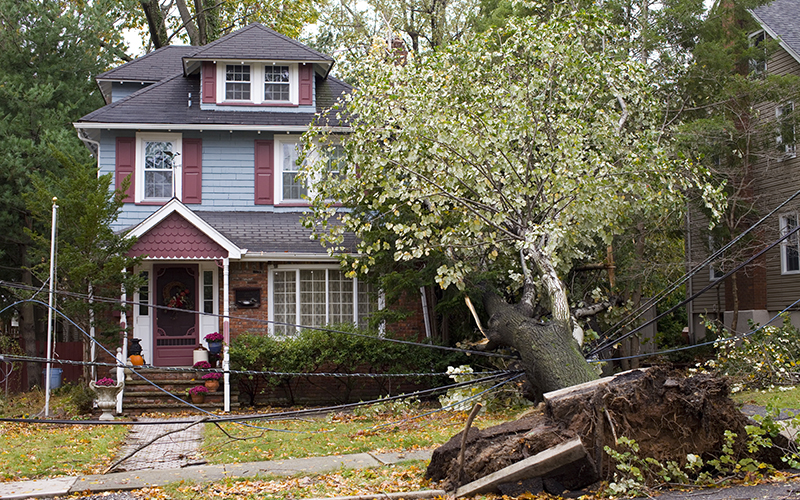September is Emergency Preparedness Month and, in the event of a disaster, there are several things your residents should know about their electrical service in particular, and energy safety in general.

Many consumers are unaware of how to prepare their homes for disasters or what to do in the aftermath. Those preparing may inadvertently cause even more problems without the appropriate guidance.
Charge It Up
Residents in the path of a storm should prepare themselves by charging any devices they use to communicate, including cell phones and computers. If they have an external charger for these devices, they, too, should be charged. Any electronic devices that may be in danger of being flooded should be moved to a safer part of the home.
If you advise residents to shut down power to their homes, instruct them to turn off each individual breaker, then the main breaker. You may want to include common sense reminders that they should not touch the breaker box if their hands are wet or if it is surrounded by standing water.
Gas and Water
Your residents should know where the gas and water shut-off valves are located and how to turn these off as well. Despite these being out of your purview, they will still appreciate the information.
Some residents may purchase generators, especially if you’re in an area that experiences frequent hurricanes, tornados or debilitating snowstorms. Many of those making such a purchase will do the research for themselves, and understand it must be installed outside and away from windows or doors by a qualified electrician.
They may understand that a transfer switch should be installed and power to their home turned off at the breaker. However, they may not realize that these are safety mechanisms meant to protect your linesmen from the potential of backfeed and electrocution after the initial danger has passed and power is being restored.
Detector Maintenance
Communicate what they should do and why they should do it in order to impress upon them the importance of these safety measures. In addition, residents should be encouraged to purchase and install carbon monoxide detectors, with battery backups, of course. Not only is this a good practice in general, but a large proportion of CO deaths occur in homes where a generator is being used. Your residents may think having their generator in a secure, enclosed space like a garage is convenient, but it can also be deadly. Emergency Preparedness Month is the perfect time to perform these maintenance tasks.
Electrical Issues
Following a storm or flood – especially a flood – is when your residents face the most danger from electrical-related causes. The most obvious is from downed powerlines. Your residents likely know that they should stay away from downed lines, but may not realize that, if live, they can electrify the ground for up to 35 feet away – especially if it is saturated with water. In fact, they should avoid flooded areas altogether, not only because of the danger of drowning or infection from contaminated water, but because it could be electrified by a submerged power line.
They also may believe that their car’s rubber tires will protect them from electrical shock, and they may be surprised to find out they absolutely should not drive over downed wires.
Residents also should be aware that, if a line is touching something, or an object is lying on the line, they should not touch that object. Most know they should leave downed lines alone and call emergency services, that there is no safe way to approach or move a potentially live line, but some may not know the risk of being shocked from a distance or how even a small amount of water can be very conductive.
Portions of residents’ homes may flood during a disaster. Although they may be aware of the dangers of mold and the necessity of drying out their rooms and making repairs to water-damaged floors and walls, they may not think of the electrical system nestled within and out of sight. Remind them their electrical system can’t be returned to service until it has been examined by a qualified electrician if it was exposed to water. Any devices that have gotten wet also should be examined.
Your residents want you to reach out to them. Studies have shown that regular communication improves consumer satisfaction. Emergency Preparedness Month, Electrical Safety Month and the beginning of hurricane season in mid-August are good times to remind them about basic electrical safety.
Utilities are looking for opportunities to connect more deeply with residents. HomeServe helps to improve consumer engagement for our utility partners through the integration of complementary home repair programs with utility initiatives such as energy efficiency and safety, offering them greater access and choice. Partnership allows the utility to leverage HomeServe’s marketing and communications expertise to educate their residents through a variety of channels. For more information, contact us.

